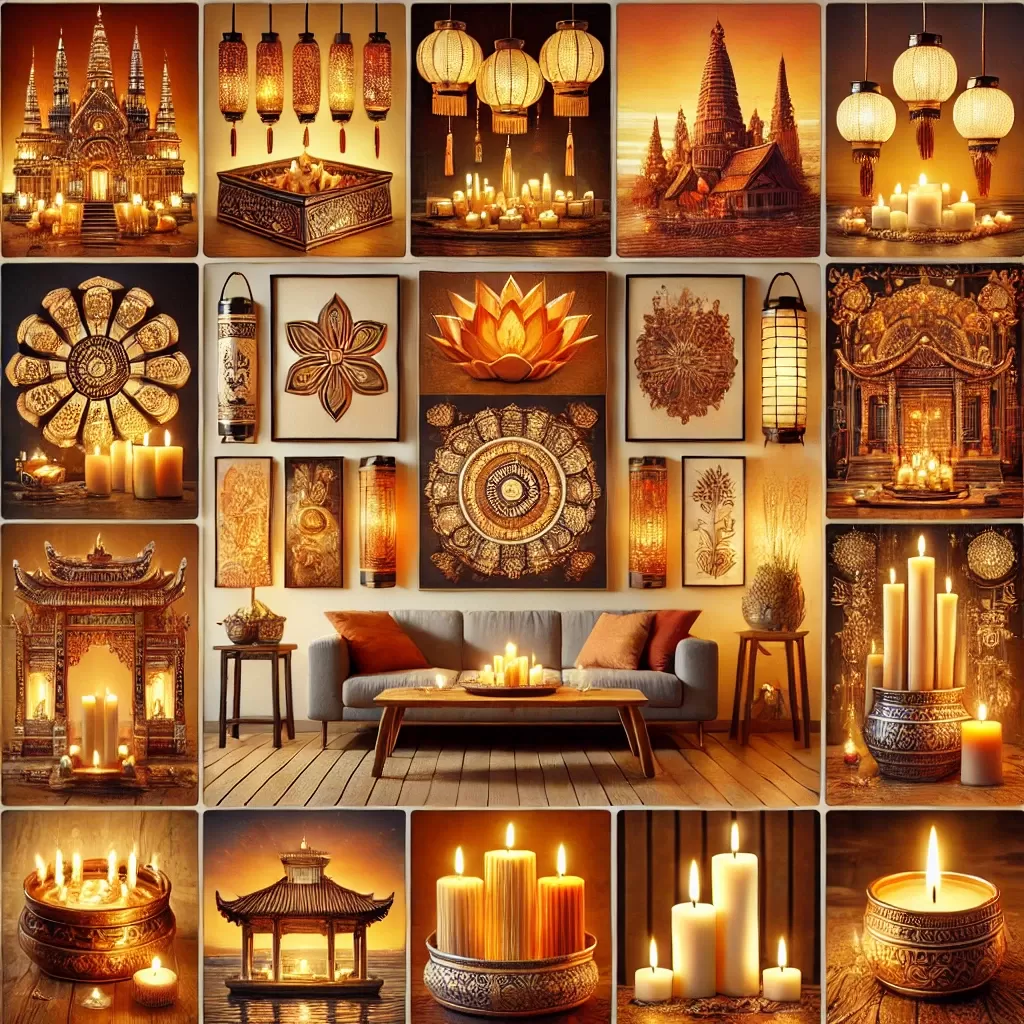The Cultural and Historical Significance of Candles Around the World
Candles have long been more than just a source of light—they are deeply embedded in the cultural and spiritual practices of various civilizations throughout history. Whether used in rituals, celebrations, or as symbols of hope, candles have served a powerful role in human culture. From the ancient Egyptians to modern-day celebrations like Diwali, candles have transcended their utilitarian function to become powerful symbols of tradition and meaning.
Candles in Global Cultures: Symbols of Light, Hope, and Celebration
In many cultures, candles are more than just an aesthetic addition to a room or a way to illuminate the dark—they carry significant spiritual, religious, and cultural meanings. One of the most well-known celebrations involving candles is Diwali, the Hindu Festival of Lights. During Diwali, people light oil lamps and candles to symbolize the triumph of light over darkness and good over evil. The tiny flames of these candles are believed to ward off negative energies and invite prosperity and happiness into the home.
Similarly, in the Western world, candles have been central to religious ceremonies, particularly within Christianity. Candles are used in various rituals such as the lighting of the Advent candles in preparation for Christmas, or the candles in churches that represent the light of Christ. The act of lighting a candle in these contexts symbolizes prayer, hope, and the presence of divinity.
In Jewish culture, the menorah holds great significance, particularly during Hanukkah, when a special nine-branched candelabra is lit to celebrate the miracle of oil that lasted for eight days in the ancient Temple. The lighting of candles during this holiday represents the perseverance of the Jewish people and the miracle of light.
The Role of Candles in Celebrations and Rituals
Candles are also widely used in secular celebrations around the world, such as birthdays. The tradition of blowing out candles on a birthday cake is a ritual rooted in ancient customs that symbolize the act of making a wish. The lighting of a candle represents the start of a new year of life, and blowing it out symbolizes sending one's hopes or prayers into the universe.
In addition to their symbolic meaning, candles also have a strong association with personal reflection and mindfulness. In many Buddhist and Taoist traditions, lighting candles during meditation is seen as a way to focus the mind, invite clarity, and symbolize the light of wisdom. The soft flicker of candlelight is often used to create an atmosphere conducive to deep contemplation and inner peace.
The Fragrance of Tradition: The Cultural Meaning of Scents
Just as candles themselves hold deep cultural significance, the fragrances they emit also carry historical and symbolic weight. One such fragrance with deep cultural roots is sandalwood. Sandalwood has been prized for centuries, especially in Eastern cultures, where it has been used for everything from religious ceremonies to personal meditation practices.
In India, sandalwood is considered a sacred wood, and its incense is often burned during prayers to purify the air and create a peaceful environment. In many Asian cultures, sandalwood is believed to promote relaxation, calm the mind, and even aid in meditation by fostering spiritual clarity. Its warm, creamy, and woody scent is synonymous with tranquility and divine presence.
Similarly, jasmine is another scent that carries significant cultural meaning. In the Middle East, jasmine is often used in perfumes, and its scent is seen as a symbol of love, beauty, and sensuality. In ancient Greece, jasmine was associated with the goddess Aphrodite, symbolizing beauty and divine femininity. In modern times, the fragrance of jasmine remains linked to romantic and spiritual connotations, evoking feelings of purity, affection, and emotional connection.
Candles: Bridging History, Culture, and Emotion
The rich history and cultural significance of candles and their fragrances are a testament to their lasting impact on human society. From the flicker of a candle in a temple to the light of a birthday cake, candles continue to serve as symbols of celebration, reflection, and hope. The warmth of the flame and the power of the scent create an experience that transcends time and geography, touching the hearts of people around the world.
As we continue to light candles for various reasons—whether for prayer, celebration, or relaxation—we honor the traditions and cultures that have shaped their meaning and their presence in our lives. A candle is not just a tool for illumination; it is a reminder of our connection to the past, our culture, and the timeless power of light and fragrance to shape our experiences and emotions.


0 comments